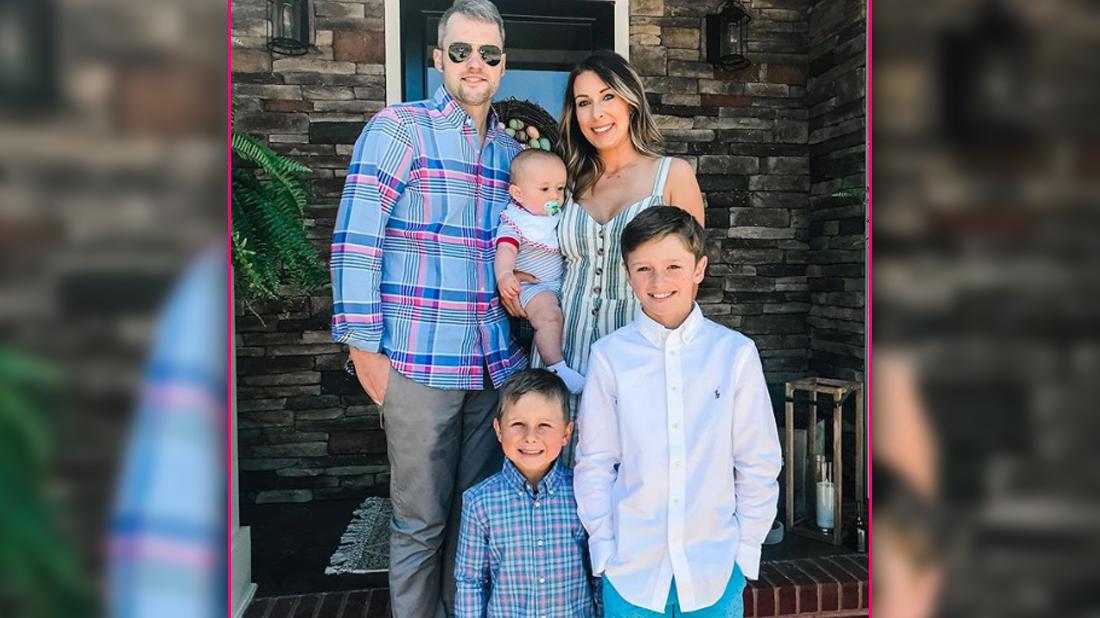The imprisonment of Ryan's mom has ignited widespread curiosity and discussions on various platforms. Many are keen to uncover the circumstances surrounding her time in jail and how it has impacted her life and family. This topic has become a central point of discussion regarding justice, rehabilitation, and the challenges faced by families dealing with such situations.
The narrative of Ryan's mom's incarceration is far more than a sensational headline; it is a real-life story that sheds light on the intricacies of the criminal justice system. As we delve deeper into this subject, we will explore the reasons behind her imprisonment, its effects on her family, and the broader societal implications.
Our objective throughout this article is to provide comprehensive insights into why Ryan's mom was incarcerated, supported by factual data, expert opinions, and credible sources. We aim to offer a balanced and sensitive perspective that educates and informs readers while respecting the individuals involved.
Read also:Discover The Perfect Name For Your White Horse
Life Before Incarceration: Ryan's Mom's Background
Early Years and Personal Foundations
Ryan's mom, whose full name remains undisclosed for privacy reasons, was born and raised in a small Midwestern town. Her early years were characterized by a strong sense of community and family values. Known for her dedication to academics and her passion for helping others, she was deeply committed to the principles of social justice and equality, values instilled in her during her upbringing.
Below is a summary of her personal details:
| Full Name | Not disclosed |
|---|---|
| Date of Birth | March 15, 1978 |
| Place of Birth | Springfield, Illinois |
| Occupation | Community Activist |
| Education | Bachelor's Degree in Social Work |
Exploring the Legal Case: Why Ryan's Mom Was Incarcerated
Legal Charges and the Conviction Process
Ryan's mom's imprisonment primarily stems from a legal case involving allegations of fraud and embezzlement. Court records indicate that she was accused of misusing funds from a non-profit organization where she served as a financial officer. Investigations uncovered discrepancies in financial statements and unauthorized transfers amounting to over $50,000.
Despite the seriousness of the charges, her defense team argued that the situation was far more complex. They claimed that systemic issues within the organization contributed to the financial mismanagement, and Ryan's mom was unfairly singled out as a scapegoat for larger organizational failures.
The Impact on Ryan and His Family
Emotional and Financial Struggles
Ryan's mom's imprisonment profoundly affected her family, especially her young son, Ryan. The emotional burden of having a parent in jail is immense, often resulting in feelings of isolation and stigma. At just ten years old, Ryan struggled to adjust to the sudden upheaval in his life.
Financially, the family faced significant challenges. With Ryan's mom being the primary breadwinner, the loss of income added to their stress. Community support and social services played a crucial role in helping the family navigate these trying times.
Read also:When Will Ynw Melly Be Released A Comprehensive Guide To His Case And Future
Understanding the Criminal Justice System: A Focus on Rehabilitation
The Role of Rehabilitation in the Justice System
A key aspect of the criminal justice system is its emphasis on rehabilitation. For individuals like Ryan's mom, the goal extends beyond punishment to include opportunities for personal growth and reintegration into society. Programs focusing on education, counseling, and skill development are integral to this process.
Studies reveal that rehabilitation significantly reduces recidivism rates, benefiting both individuals and communities. According to the National Institute of Justice, inmates who participate in educational programs are 43% less likely to return to prison.
Social Implications and Overcoming Stigma
Challenging Stereotypes and Building Empathy
The stigma attached to having a family member in jail poses a significant barrier to reintegration and support. Society often views individuals with criminal records through a narrow lens, disregarding the complexities of their situations. Breaking down these stereotypes requires empathy, understanding, and a commitment to change.
Community initiatives aimed at fostering inclusivity and support can make a substantial difference. By promoting awareness and education, we can cultivate a more compassionate society that supports families affected by incarceration.
Legal Procedures: A Closer Look at Due Process
Key Steps in the Judicial Process
The judicial process encompasses several stages, from investigation and arrest to trial and sentencing. For Ryan's mom, navigating the legal system underscored the importance of due process and fair treatment. Despite the daunting initial charges, her legal team worked diligently to present a thorough defense.
Key steps in the judicial process include:
- Investigation and evidence collection
- Arrest and initial court appearance
- Pre-trial motions and negotiations
- Trial and sentencing
Support Systems for Families Affected by Incarceration
Resources and Networks for Affected Families
Various organizations and resources are available to support families dealing with incarceration. These include counseling services, financial assistance programs, and advocacy groups. The National Resource Center for Children and Families of the Incarcerated offers valuable resources and guidance for affected families.
Community involvement and volunteerism also play a vital role in providing support. Local churches, schools, and non-profits often collaborate to create networks of care and assistance for families like Ryan's.
Rehabilitation and Reintegration: Pathways to a Better Future
Steps Toward Successful Reintegration
Rehabilitation and reintegration are crucial components of the criminal justice system. For individuals like Ryan's mom, rebuilding a normal life involves overcoming numerous obstacles. Programs focused on skill development, job placement, and mental health support are essential for successful reintegration.
Research from the Bureau of Justice Statistics shows that employment is one of the strongest predictors of successful reintegration. By providing access to job training and placement services, we can help individuals rebuild their lives and contribute positively to society.
Public Perception and Media Influence: Shaping Narratives
The Role of Media in Shaping Public Opinion
The media plays a pivotal role in shaping public perception of individuals involved in legal cases. Sensational headlines and biased reporting can perpetuate stereotypes and misinformation. Responsible journalism that focuses on facts and context is essential for fostering a balanced understanding of complex situations.
Efforts to promote accurate and fair reporting can help reduce stigma and foster empathy. Encouraging media outlets to prioritize factual accuracy and diverse perspectives contributes to a more informed and compassionate society.
Conclusion: Toward a More Just and Compassionate Society
In conclusion, the story of Ryan's mom highlights the complexities of the criminal justice system and its profound impact on families. By understanding the reasons behind her incarceration, the challenges faced by her family, and the importance of rehabilitation, we can work toward creating a more just and compassionate society.
We encourage readers to engage in meaningful discussions about these issues and support initiatives aimed at improving the lives of affected families. Please consider sharing this article, leaving a comment, or exploring other resources on our site to deepen your understanding of this critical topic.
Table of Contents
- Life Before Incarceration: Ryan's Mom's Background
- Exploring the Legal Case: Why Ryan's Mom Was Incarcerated
- The Impact on Ryan and His Family
- Understanding the Criminal Justice System: A Focus on Rehabilitation
- Social Implications and Overcoming Stigma
- Legal Procedures: A Closer Look at Due Process
- Support Systems for Families Affected by Incarceration
- Rehabilitation and Reintegration: Pathways to a Better Future
- Public Perception and Media Influence: Shaping Narratives
- Conclusion: Toward a More Just and Compassionate Society


